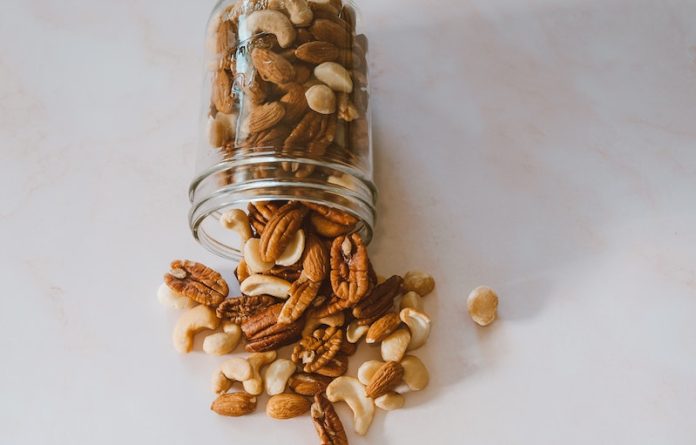
Scientists from Universidad de Castilla La-Mancha found that eating more nuts is linked to a lower risk of depression.
Depression is a mental health disorder characterized by persistently depressed mood or loss of interest in activities, causing significant impairment in daily life.
Possible causes include a combination of biological, psychological, and social sources of distress.
Increasingly, research suggests that these factors may cause changes in brain function, including the altered activity of certain neural circuits in the brain.
The persistent feeling of sadness or loss of interest that characterizes major depression can lead to a range of behavioral and physical symptoms.
These may include changes in sleep, appetite, energy level, concentration, daily behavior or self-esteem. Depression can also be associated with thoughts of suicide.
Dietary patterns play a key role in mental health, depression, and mood state.
However, the evidence concerning specific foods highly recommended for mental health, such as nuts, has not yet been synthesized.
In the current study, researchers aimed to synthesize the evidence for a link between higher nut intake, lower risk of depression, and better mood state.
They reviewed studies exploring the association between nut consumption, level of depression, and mood state in the general population were included.
Nuts are high in ‘good fats’ – monounsaturated fats (most nut types) and polyunsaturated fats (mainly walnuts). Low in saturated fats.
Good sources of dietary protein – a good alternative to animal protein. Some nuts are also high in the amino acid arginine, which keeps blood vessels healthy.
The current review included a total of 10 studies involving 66 418 people.
The researchers found in studies concerned with depression, there was a higher level of nut consumption was linked to a lower risk of depression.
In studies concerned with mood state, there was an association between higher nut intake and big improvement in mood state.
But both effects were not consistent in all studies.
The team concludes that despite the small number of studies and the limitations related to them, overall, the available evidence suggests that higher nut intake could be linked to a lower risk of depression, fewer depressive symptoms, and a better mood state in the general population.
The research was published in Nutrition Reviews and conducted by Rubén Fernández-Rodríguez et al.
If you care about nutrition, please read studies about vegetarianism linked to a higher risk of depression, and Vitamin D could help reduce depression symptoms.
For more information about nutrition, please see recent studies about antioxidants that could help reduce the risk of dementia, and ultra-processed foods may make you feel depressed.
Copyright © 2022 Scientific Diet. All rights reserved.





